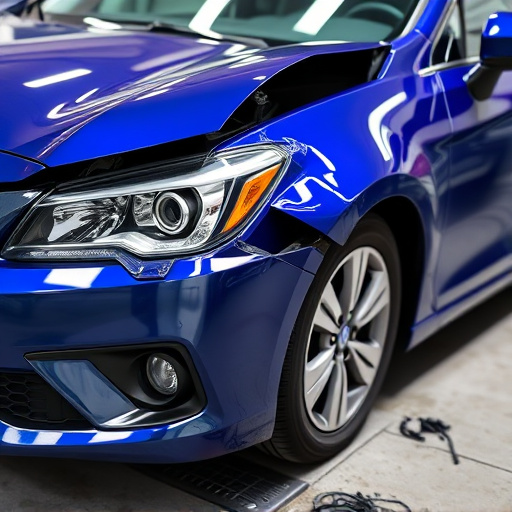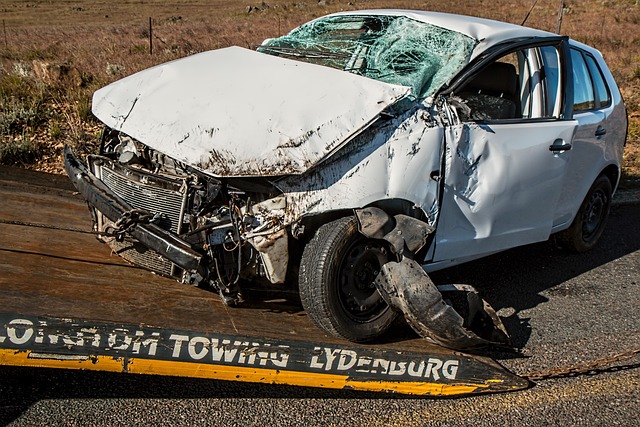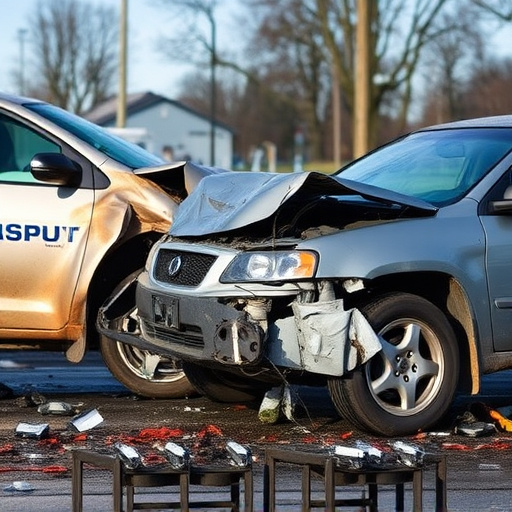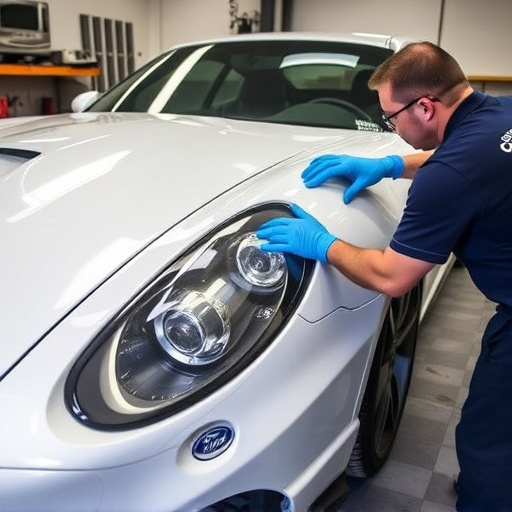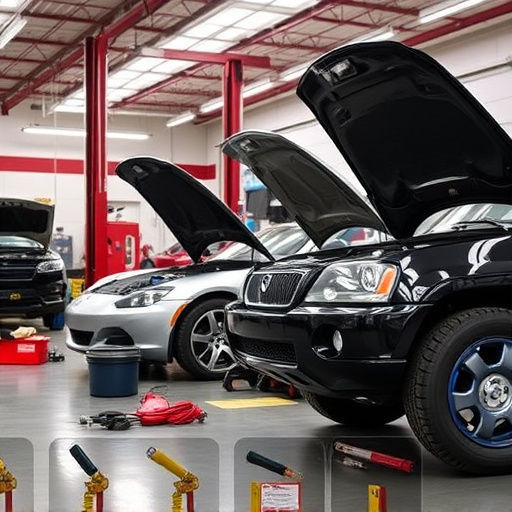PDR quality standards transform auto industry benchmarks, ensuring top repair work and customer satisfaction through rigorous guidelines. This streamlines claims processing, reduces costs, builds trust, and restores vehicles to pre-loss conditions, benefiting insurers, repair facilities, and policyholders alike.
Insurance companies increasingly turn to Preferred Damage Repair (PDR) with established PDR quality standards to streamline operations and enhance customer satisfaction. This article explores why these standards are crucial for insurers, focusing on three key aspects: improving claims processing efficiency, fostering trust through consistent repair quality, and leveraging PDR as a strategic advantage in a competitive market. By adopting uniform PDR quality standards, insurers can navigate the complex landscape of vehicle repairs with greater confidence and control.
- PDR Quality Standards: The Core Advantage for Insurers
- Streamlining Claims Processing: Efficiency Through Standards
- Enhanced Customer Trust: Why Standards Matter in PDR
PDR Quality Standards: The Core Advantage for Insurers
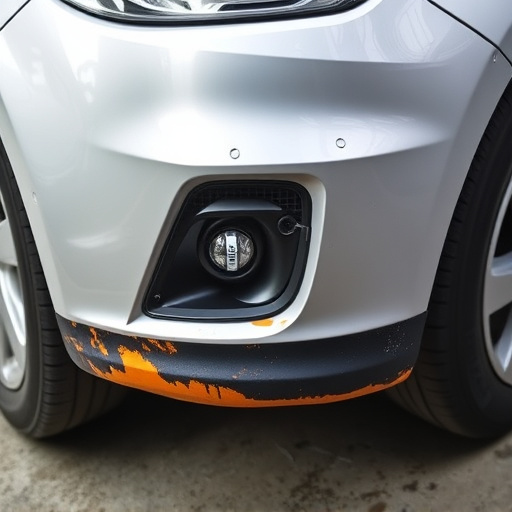
PDR Quality Standards serve as the cornerstone for insurers when assessing and partnering with auto collision repair facilities. These standards, developed to ensure top-notch automotive body work and customer satisfaction, offer a clear framework for quality control. By adhering to PDR’s rigorous guidelines, repair shops demonstrate their commitment to excellence in every aspect of automotive repair services, from accurate damage assessment to precise panel replacement and expert finishing.
This adherence to PDR quality standards provides insurers with confidence in the repairs, enabling faster claims processing times and reduced costs associated with misaligned or subpar work. Moreover, it fosters trust between insurers and repair facilities, creating a collaborative environment that prioritizes customer satisfaction and vehicle restoration to pre-loss conditions – ultimately benefiting all parties involved.
Streamlining Claims Processing: Efficiency Through Standards
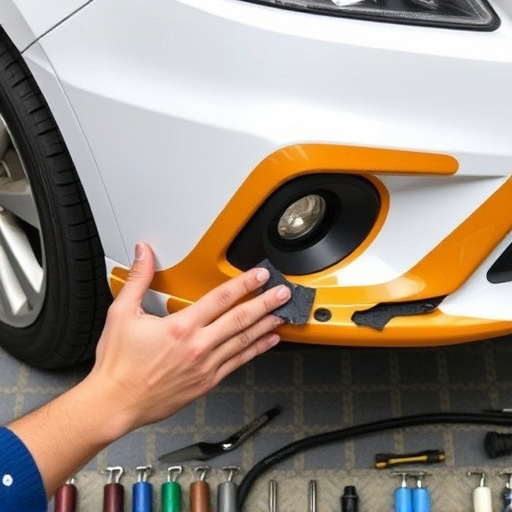
The adoption of PDR (Precision Damage Repair) with established quality standards has been a game-changer for insurance companies and vehicle body shops alike. By implementing these standardized procedures, claims processing becomes significantly more efficient. This is particularly evident in the realm of auto body repairs, where frame straightening and other intricate tasks are now executed with enhanced precision and speed.
Through PDR, insurance claims can be handled more swiftly as the consistent application of standards streamlines the entire process. This not only reduces administrative burdens but also minimizes the time required for vehicle body shop repairs, ensuring faster turnaround times. The end result is a smoother experience for all parties involved, from policyholders to insurers, with overall cost savings and improved satisfaction levels.
Enhanced Customer Trust: Why Standards Matter in PDR
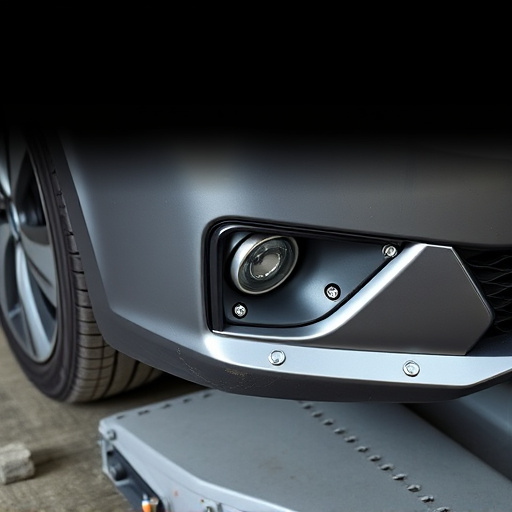
In the realm of auto glass replacement and car bodywork services, establishing PDR (Paintless Dent Repair) quality standards is paramount for fostering enhanced customer trust. When insurance companies advocate for these standards, they prioritize not just the visual aesthetics of a vehicle but also the overall safety and reliability of its components. Adhering to set protocols ensures that car repair services are consistent, efficient, and effective, thereby assuring customers that their vehicles will be restored to their pre-incident condition.
Maintaining high PDR quality standards contributes to a transparent and trustworthy relationship between insurance providers, auto repair shops, and policyholders. Customers benefit from knowing that their claims process is streamlined, and their vehicles are repaired using approved methods that preserve the car’s original finish, enhancing its resale value. This level of professionalism and accountability in auto glass replacement and car bodywork services ultimately strengthens consumer confidence in both insurance companies and the repair industry as a whole.
Insurers increasingly favor PDR (Pre-Determined Repair) with established quality standards, recognizing their core advantages in streamlining claims processing and enhancing customer trust. By adopting these standards, insurance companies can ensure consistent repair quality, reduce costs, and provide a more seamless experience for policyholders. The adoption of PDR quality standards thus positions insurers as forward-thinking leaders in the industry, catering to modern consumers’ needs and expectations.

